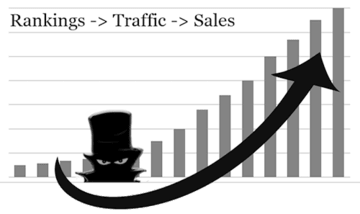A secure proxy, in this chapter, refers to any proxy that gives users the ability to establish encrypted connections. An unsecured proxy will still allow you to bypass many types of filtering, but will be less useful if your Internet connection is searched for keywords or targeted web addresses. It is a particularly bad idea to use a non-secure proxy to access usually encrypted websites, such as webmail accounts or banking sites. By doing so, you may be exposed to sensitive information that would normally be hidden. In addition, as we have seen above, unsecured proxies are easier to identify and block than secure proxies for those whose job it is to update filtering software. In the end, the fact that there are excellent free, fast and secure proxies means that there are very few valid reasons to use an insecure elo boost lol .

You can determine whether a web proxy is secure or not by attempting to connect to the proxy site with an HTTPS address. Just as with webmail services, both secure and – connections may be possible. That’s why you should always make sure to use the secure address. Most of the time, in such cases, you must accept a “security certificate” required by your browser in order to continue. Such is the case of the Peacefire proxy, discussed below. Your browser’s warnings about security certificates tell you that someone, like your ISP or hacker, might be checking your connection to the proxy. Despite the usefulness of these warnings, it is always advisable to use, as much as possible, secure proxies. On the other hand, when your workaround method relies exclusively on a proxy of this type, you should avoid visiting secure websites, entering passwords, or exchanging sensitive information unless you are able to verify the authenticity of the SSL signature of the proxy. To do this, you will need a communication channel with the proxy administrator.
You should also avoid accessing sensitive data through a web proxy, unless you trust its administrator completely. This precautionary measure is necessary, whether or not you receive a security certificate warning when you visit the proxy. It is necessary even if you know the proxy administrator well enough to check the server fingerprint before telling your browser to accept the security certificate. When you depend on a single proxy server to bypass the filtering steps, the administrators of that proxy will know your IP address and the websites you visit. What’s more, if this proxy is web-based, a malicious administrator could easily access all the data that flows between your browser and the websites you visit, including the contents of your emails and passwords.
As for non-web proxies, you may need to do some research to determine whether secure connections are allowed or not. All proxies and anonymous login networks recommended in this chapter are secure.
Private Proxies and Public Proxies:
Public proxies accept connections from anyone, while private proxies usually require a username and password. Although public proxies have the obvious advantage of being freely accessible, to the extent that they can be found, they often tend to be quickly very busy. As a result, even though public proxies are as sophisticated and well managed as private proxies, they are often rather slow. Finally, private proxies are usually managed either by commercial firms or by administrators who create accounts for users they know personally or socially. It is therefore quite easy, in the majority of cases, to determine the motivations of the directors of private proxies. You should not take for granted, however, that private proxies are more trustworthy than their public counterparts. After all, profit bait has led administrators of some digital services to denounce their users.



